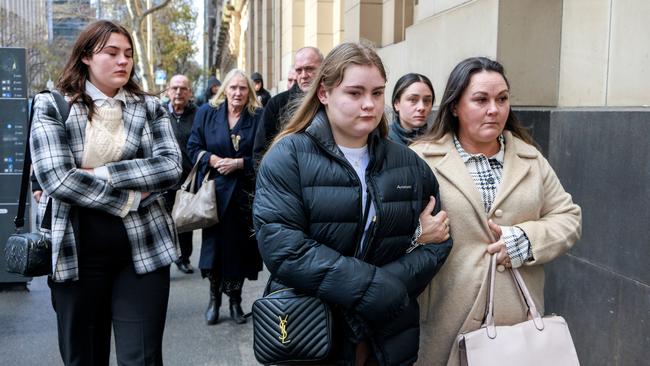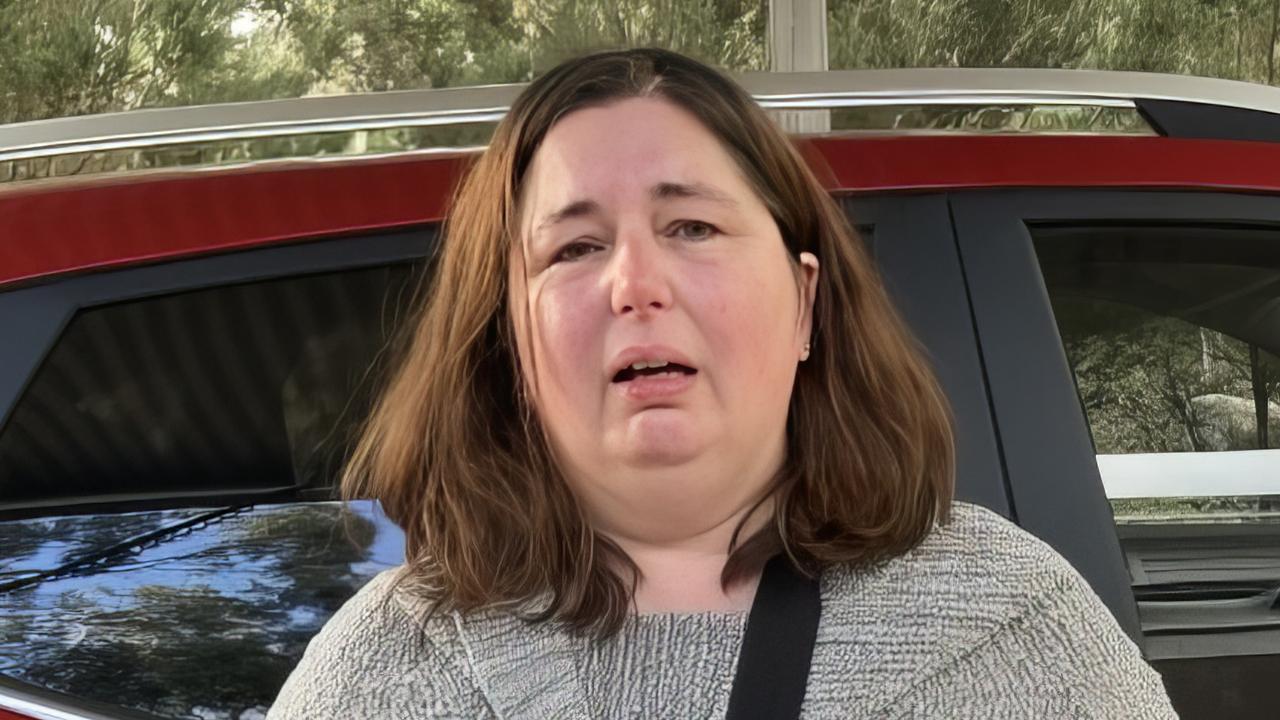Jason Langhans stabbing: Teen killer eligible for parole in less than two years
Supporters of a 17-year-old who was fatally stabbed with a screwdriver cried out when his killer was handed just four years, with the judge warning them “this is not a football stadium”.

Police & Courts
Don't miss out on the headlines from Police & Courts. Followed categories will be added to My News.
A judge has admonished furious supporters who screamed out as she sentenced Jason Langhans’ teenage killer to just four years jail, telling the crowd, “this is not a football stadium”.
Observers in the Supreme Court couldn’t contain their anger as the boy who bashed 17-year-old Jason to death with a screwdriver at a 16th birthday party in Tooradin was handed a jail term that could see him released in less than two years.
The offender, also 17, who cannot be named for legal reasons, pleaded guilty to manslaughter and was handed four years jail on Thursday, with a maximum term of six years.
With time already served, he will be eligible for release in mid-2025.
As soon as Justice Elizabeth Hollingworth handed down her sentence, observers yelled out, with Her Honour warning people to leave if they couldn’t “behave appropriately”.
“This is not a football stadium, this is a courtroom,” Her Honour said.
The teen killer had gatecrashed the party where Jason had tried to stop a fight between him and a mate when he was punched once to the head with a screwdriver hidden in the stranger’s fist, on March 21, 2021.


Justice Hollingworth said she discounted the teenager’s sentence due to his early guilty plea to manslaughter, after he was originally charged with murder.
The court heard he suffered from complex mental illness with schizophrenia and PTSD, which followed a traumatic childhood fleeing the Taliban with his family in his home of Afghanistan.
His eldest sibling was shot dead by the fundamentalist group, he’d seen horrors and dead bodies in his homeland before his family arrived in Australia by boat.
A doctor found that his “intense paranoia” was why he carried a screwdriver to the party that night.
The teen had been at a mate’s house drinking and smoking cannabis when they decided to go to the 16th birthday, which only one of their group was invited to.
“There might be trouble,” the invitee told his friends.
Someone replied, “Got any knives in case anyone starts anything?”
A screwdriver was offered and taken by the killer.
When they arrived at the party about 1.30am, just 30 people were left lingering outside waiting for lifts, and one party guest approached the gatecrashers.
“Behaving obnoxiously”, the guest touched some of their faces and walked away, then returned to them about 30 minutes later where he put his hand out to the killer.
Shaking hands, observers said it seemed like the pair “wouldn’t let go” of each other, which is when Jason and his friends intervened.
Trying to diffuse the situation, Jason said, “Leave it” or “Stop”, before he was suddenly, and without warning, punched once to the head and immediately fell to the ground.

The gatecrashers were chased from the party while Jason was cared for, his friends not realising the extent of his injuries.
The killer later told his gatecrasher mates, “I hit one guy badly with the screwdriver”.
Jason underwent multiple operations over three weeks in a bid to save his life from the single injury through his cranial bone.
The teen with an “infectious smile and cheeky manner” was about to start a plumbing apprenticeship and had bought his first car.
Instead, his “utterly devastated” family gathered around his hospital bed, where they played his favourite songs and watched one last game of his beloved Tigers before turning off his life support on April 10.
In sentencing Jason’s killer, Justice Hollingworth found that sending him to youth detention was “not appropriate” given his history and the seriousness of his past crimes.
However, Her Honour made a special request to the Adult Parole Board that it consider transferring him to Youth Justice until he turned 21, given he would be “very vulnerable in an adult prison”, where his mental health could deteriorate.
With 792 days already served in custody, the teen with “reasonable” prospects of rehabilitation will be eligible for release in June, 2025.




